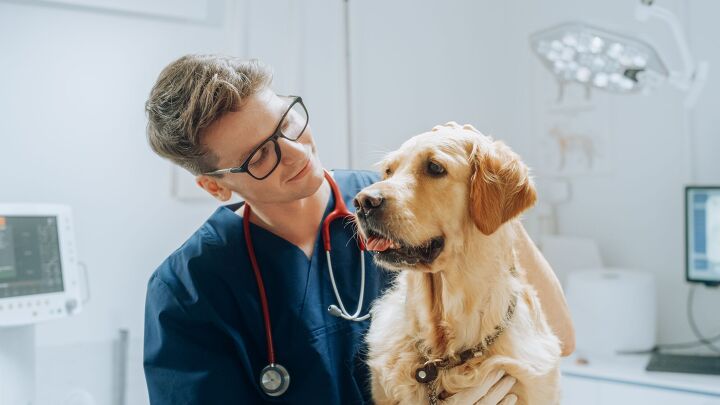Possible Cancer Vaccine for Dogs in the Works

Mark your calendar because May 2024 marks the end of a 5-year clinical trial that may put an end to many canine cancers.
For those of us sharing space with an older pooch, we know how quickly vet bills can mount as we respond to the more frequent health concerns. But while once upon a time, those senior issues were simply age-related ailments such as joint pain and vision loss, today, we’re seeing the “Big C” rearing its head. In fact, cancer in its various forms, has become the leading cause of death in senior dogs.
Maybe these cancers are the result of toxic environmental issues, unhealthy food additives, or a genetic predisposition. Maybe these cancers are simply down to the better technology and improved sciences that are helping us diagnose the disease sooner and more accurately. Who knows?
But what if there was a way to help prevent the disease altogether?
Enter Dr. Stephen Johnston, of Phoenix-based research institute Calviri who has come up with a vaccine that he hopes can do just that.
Following 15 years of study, his firm developed and tested a vaccine on mice. And based on results that proved highly promising, the vaccine is now in clinical trials with the Colorado State University's Flint Animal Cancer Center.
So, how best to test a vaccine for dogs? On dogs, of course. So, the University did a call-out for volunteers who would be willing to participate in the Vaccination Against Canine Cancer Study (VACCS trial). The dog would receive the vaccine (or a placebo) along with his annual shots followed by a health check twice a year. To participate in the study, dogs had to be healthy, cancer-free, between the ages of 5.5 and 11.5 years and not experiencing any type of auto-immune disease. The study also listed a number of breeds and crossbreeds (including Doodles and Puggles) that would qualify for inclusion in the study.
Johnston says it's not really different than any other vaccine. "We vaccinate with the mistakes and prepare the immune system to mount the defense as soon as the tumor arises." So, similar to how other vaccines work, it encourages the immune system to step up to the plate at the first signs of trouble.
Also similar to the human vaccines, there are those who raise concerns about this type of testing. But not only have there been no safety issues with the clinical trials to date, but Johnston has identified an unexpected outcome that has proven quite positive. By kick-starting the dog immune system, it has resulted in a 50% reduction in non-cancerous chronic diseases such as arthritis.
The ultimate goal of the vaccine is to help prevent a number of the more common types of canine cancers including mast cell tumors (skin cancers), osteosarcoma (bone cancer), lymphoma, melanoma, lung cancer, soft tissue carcinomas and even mammary cancer. And with the first of the VACCS test subjects enrolled back in May of 2019, the clinical trial is scheduled to wrap up in May of 2024. While it still requires USDA approval and further testing, we’re hoping to hear some encouraging news this Spring!

Sharing space with three seriously judgy Schnoodles and a feline who prefers to be left alone. #LivingMyBestLife
More by Mary Simpson























